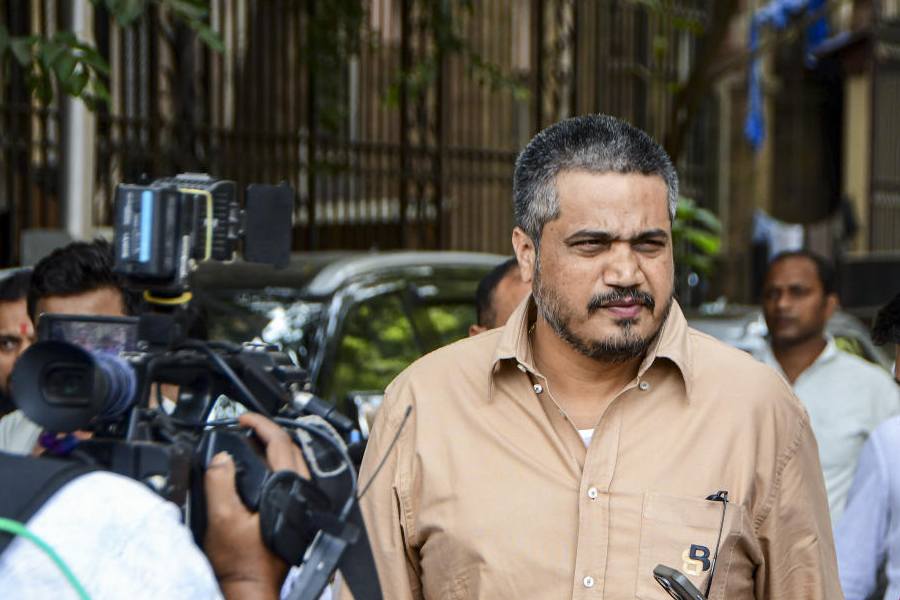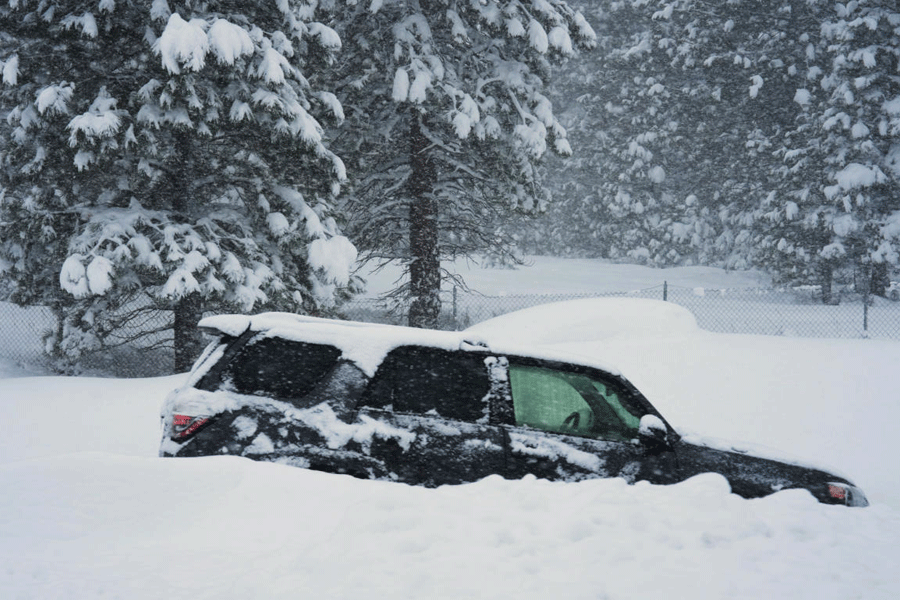New Delhi, Oct 24(PTI): Hindi film music industry and Bollywood personalities on Thursday remembered playback legend Manna Dey as the “last voice of the golden era” and “stalwart of the music world” who enthralled generations with his romantic ballads and fast-paced modern numbers.
Paying tributes to the versatile singer, who passed away in a Bangalore hospital on Thursday morning at the age of 94, tabla maestro Zakir Hussain posted on Twitter, “Last of the great voice of golden Bollywood has moved on. Manna Da will be missed and forever revered.”
Singer Usha Uthup, who performed with Dey many a time, said “I am sad but at the same time happy too because he is relieved from the pain he was undergoing from so many days. Indeed a relief for him but unbelievable and shock for all of us... There was Mohd Rafi, Kishore kumar but he was a one of his kind. I can't think of him as a past because I have done amazing shows together and it was such a learning in itself. Such a versatile singer he was.”
New-age singers such as Sunidhi Chauhan and Kailash Kher, Bollywood megastar Amitabh Bachchan and lyricist Javed Akhtar, also mourned his demise. Akhtar, who did not get a chance to work with the legendary singer, said he is known to him more as a voice than a person. “When I started writing songs by that time he had almost retired. I met him couple of times but I can't claim that I know him as a person. I have been his great admirer like many others. Though he retired many years back, but today hearing about his death is a bit of shock. He has tremendous control over classical music.”
Sunidhi Chauhan said “Heartbroken at Manna Da's shocking demise.”
Apart from Bengali and film music, Dey has also lent his voice for ‘Madhushala' composed by the late Harivansh Rai Bachchan. Amitabh Bachchan said ”Manna Dey, stalwart of the music world, passes away. Flooded with memories and his songs. In particular his rendition of Madhushala. -Manna Dey RIP !!
Dey, who was in and out of Narayana Hrudayalaya hospital in the last five months for respiratory and renal problems, died of cardiac arrest at 3:50am, hospital spokesman Vasuki said.
His daughter Shumita Deb and his son-in-law Jnanranjan Deb were by his bedside when the end came, his family said. His wife Sulochana passed away in January last year. His second daughter lives in the US.
The condition of Dey deteriorated since Wednesday afternoon. He had been discharged twice for a brief period in the last five months, Vasuki said.
Along with Rafi, Mukesh, and Kishore Kumar, Dey was the last member of the famous quartet of singers who dominated the Hindi music industry from the 1950s to 1970s.
Born in Calcutta in 1919, Dey went on to sing over 3,500 songs in Hindi, Bengali, Gujarati, Marathi, Malayalam, Kannada and Assamese films before quitting movies in the 1990s. His last song was 'Hamari hi mutthi mein' for the 1991 film 'Prahaar'.
Dey, who had made Bangalore his home for the past few years, started his career in playback singing with the film 'Tamanna' in 1943. His uncle Krishna Chandra Dey set the musical score and Manna Dey had to sing a duet with Suraiya. The song 'sur na saje kiya gaon mein' was an instant hit.
In 1950, 'Mashal' was the second film where Dey got the opportunity to sing a solo ‘Upar gagan vishal’, a melody created by Sachin Dev Burman.
In 1952, Dey sang both for a Bengali and a Marathi film of the same name and storyline, Amar Bhupali, and established himself as a booming Bengali playback singer that in years to come took him to greater heights.
His popular tracks include Poocho Na Kaise Maine (Meri Surat Teri Aankhen), Ae Meri Zohra Jabeen (Waqt), Zindagi Kaisi Hai Paheli(Anand), Yeh Dosti (Sholay) and Ek Chatur Naar (Padosan) and Laga Chunari Mein Daag (Dil Hi Toh Hai) and'Yeh Raat Bheegi Bheegi' (Chori Chori).
Dey was much in demand for complicated raag-based songs and was once even pitted against his idol Bhimsen Joshi in 1956 movie 'Basant Bahar' for 'Ketki, gulab, juhi' song, something that he initially refused.
While his mastery over classical numbers somewhat pigeonholed him, the uniqueness of his voice made it impossible for any singer to replicate him.
Winner of the prestigious Dadasaheb Phalke award in 2007, Dey was residing in Bangalore after spending more than fifty years in Mumbai.
Dey recorded many popular duets with Rafi, Lata Mangeshkar, Asha Bhosle and Kishore Kumar. He gave some of his biggest hits with composers S D Burman, R D Burman, Shankar- Jaikishan, Anil Biswas, Roshan and Salil Chowdhury, Madan Mohan and NC Ramachandra.
Dey received his education in Calcutta's famed Scottish Church College and Vidyasagar College. He found his calling in school itself where he would sing to entertain his friends, but soon he took it up seriously under the tutelage of his uncle.
Dey accompanied his uncle in 1942 on a visit to Mumbai. There he first worked as an assistant to his uncle and then under Sachin Dev Burman, who recognised his talent.
Born to Purna Chandra and Mahamaya Dey on May 1, 1919, as Prabodh Chandra Dey, Dey was inspired by his youngest paternal uncle Krishna Chandra Dey, a known singer and actor of New Theatres company.
Manna, a name given to him by KC Dey, was initially planning to become a barrister but under his uncle's influence, he decided to opt for a career in music.
He took his first singing lessons from his uncle, Ustad Dabir Khan, Ustad Aman Ali Khan and Ustad Abdul Rahman Khan.
He referred to Sulochana Kumarana, who hailed from Kerala, as his inspiration. “She was everything in my life - the one I always consulted about my profession not to speak about my personal life as well.”
His autobiography 'Jiboner Jalsaghorey' was published in 2005 and was later translated into English (Memories Come Alive), in Hindi (Yaden Jee Uthi) and in Marathi.









